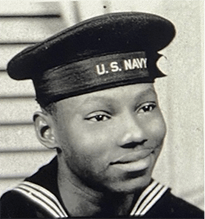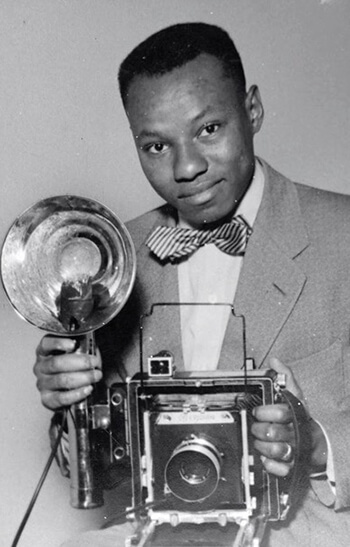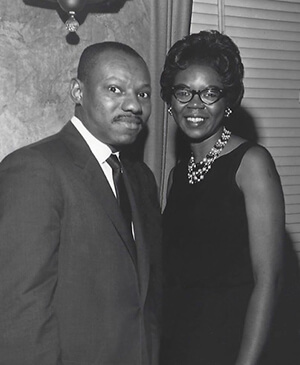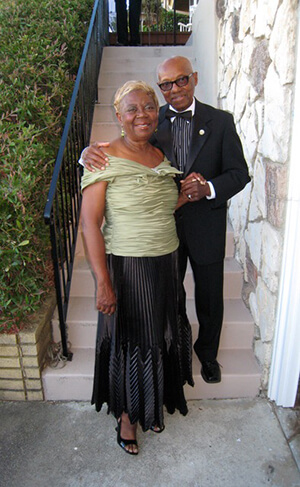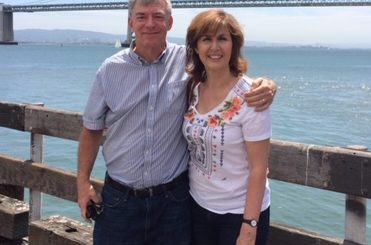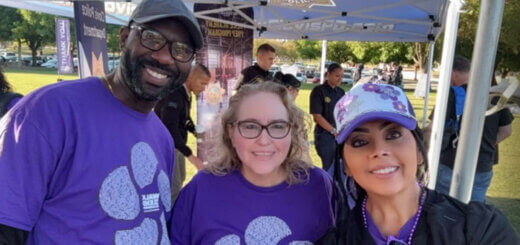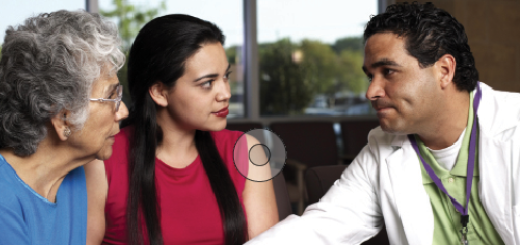Black civil rights activist and photographer now battles dementia.
Since the original posting of this blog in February in 2024, David Johnson died on March 1, 2024
Famous Bay Area photographer, World War II veteran and civil rights activist, David Johnson, has an impressive resume of making the world a better place to live in. Continuing his activism well into his 80s, it was easy to assume his new quirks were just David being eccentric and not that of dementia. His wife, Jackie Sue, shares David’s illustrious past, and how important it is to both care for yourself and prepare for the future.
David Johnson: A history
David Johnson was born in Florida in 1926, when segregation was normal and the Black community was expected to be in their homes before the sun went down for their own safety. Growing up poor, he was expected to help pick cotton in the fields and was the only child in the house that could read. At 17 David was drafted into the U.S. Navy and was sent to the Philippines.
“Coming from segregated south [by train, the men] crossed the line [in the United States] where [the train cars] can be mixed [races],” explained Jackie Sue. “To get out of [Florida] and come to California, to a black teen coming from a state like that and see that transition. It was quite an eye opener for young teenagers to experience that.”
When David’s time in the Navy was over, he returned to California and did his best to make the world a better place for the people around him, especially the Black community. His list of accomplishments has earned him a place in history and can be found fully on his Wikipedia page. Here are some of things Dave has achieved in his lifetime:
- The first Black student to study under Ansel Adams (a famous photographer).
- One of the few people who has photographed the Fillmore District, a largely Black neighborhood in San Francisco prior to the 1960s. In his later years, these photos were shown in an exhibition and David received the Certificate of Honor in Photography from the Mayor of San Francisco.
- Helped unionize the United States Post Office (USPS) and became President of the National Alliance of Postal Employees in San Francisco.
- Founded the Black Caucus at the University of California, San Francisco (UCSF) and in his later years received the Medal of Honor for this.
“[When David began his work at UCSF] minorities and women weren’t allowed in the School of Pharmacy,” said Jackie Sue. “It was difficult [for minorities] to become doctors. As one of the men said [in a film about the medal of honor], the maids couldn’t use the bathrooms. They had to go to the basement. Many people are still standing on David’s shoulders and benefiting from what he and others like him did. Woman, minorities and LGBTQ, are all benefiting from what he did in the 50s, 60s and 80s.”
Friends for 70 years
After finishing his education with Ansel Adams, David and his now late wife Lucy opened a photography studio. To make ends meet, David began his work at the USPS where a fellow church member, Jackie Sue also worked. Jackie Sue and her now late husband became good friends with the Johnsons for the rest of their lives.
After both Jackie Sue and David’s spouses died, the couple realized that their friendship had become something more. The couple married in 2009 and moved to Marin where they currently reside in a senior living community.
“We have been friends for over 70 years, married to other people,” said Jackie Sue. “I’m 10 years younger [than David] and didn’t realize how much he was doing in the world, in society and in the community. Now that we’re married, I realized how accomplished he was and met many of his friends. I was in awe.”
Hiding the signs
When the couple were married, David was 83 and as far as Jackie Sue could tell, he wasn’t showing any signs of dementia. “David was still able to walk to lunch from the ferry, go to city hall, advocate for Laura’s law and then go to sheriff’s office. He’d do that twice a week.”
However, over the next decade Jackie Sue started noticing some weird quirks about David, but assumed David was just getting older. Despite knowing and seeing other people living with Alzheimer’s she never once thought that David might have the same disease.
Jackie Sue’s daughter has a saying about David, “David can rise to the occasion.” David was very good at hiding the signs of his disease. When he received the Medal of Honor from UCSF, David gave a beautiful five-minute speech, despite already being in the middle stages of dementia.
“He would give away stuff, all of his wonderful expensive camera equipment and it would be gone,” said Jackie Sue. “He would make decisions on unusual things, [and I would think], ‘Oh, that’s just a quirk of his personality. Oh, that’s his right to do that, he can do that. That’s independent, that’s his life.’ I think that’s where a lot of people, who are close to people [living with the disease], make their mistake.”
Getting old
Black Americans are twice as likely as older Whites to have Alzheimer’s or another dementia. According to the Alzheimer’s Association® 2023 Alzheimer’s Disease Facts and Figures report, 21.3% of Black Americans over the age of 70 are living with Alzheimer’s. Fifty-five percent of Blacks think that significant loss of cognitive abilities or memory is a natural part of aging rather than a disease.
Additionally, Jackie Sue and David are part of the 20% of Black Americans that say they have no barriers to excellent health care and support for Alzheimer’s or another dementia. This is partially in part because both of them are well known in their community. It can also be attributed based on where they live – a senior community.
Jackie Sue has been preparing for what happens as she aged her whole life. When the time came, it wasn’t even a question for her. She moved right in to a senior community and brought David along with her. The community they live in provides residents not only with social engagement opportunities but easy access to doctors and social workers.
“People don’t believe they’re going to get old, they don’t think they’re going to die, so they don’t prepare,” said Jackie Sue. “I’ve been practical, long before my husband died in 2004, I was always planning to get old. I planned to live in this place. Most people stay in their houses too long and don’t plan for illness coming your way. You have to face what you’re going to do when your knees go out and do the best you can with it and keep on going. You’re not going to be a spring chicken forever.”
David and Jackie Sue continued to live together until David swallowed something that tore his esophagus. He had to undergo surgery and when he returned his Alzheimer’s had gotten worse. Because of where they live, Jackie Sue is able to remain in independent living while David has moved downstairs to skilled nursing. David has access to 24/7 care and, as long as he is able, attend the classes and other activities they have available.
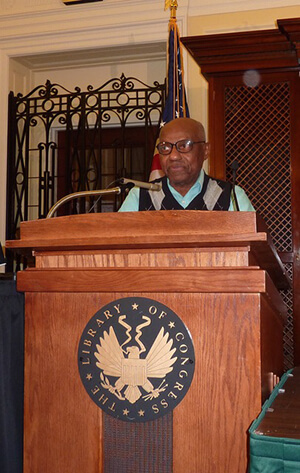
Educating yourself
In Jackie Sue’s experience with support groups in her senior community, many caregivers have a hard time understanding that their loved one has a disease. The person living with the disease is not acting out, or intentionally trying to upset the caregiver.
Initially Jackie Sue was like many others in the support group, saying things she would later regret. “I’d say terrible things, like, ‘Are you crazy? What’s wrong with you? What were you thinking?,’” said Jackie Sue. “I’m in a group [now], and they just don’t get it. [Their loved one] is sick and doesn’t even know they’re doing it.
“It’s tricky, it’s taken me a long time but quite a few years to understand the steps and changes Alzheimer’s brings on. At first you don’t want to believe it. I think that for a lot of people, we don’t want to believe it, we want people to be normal, or what we think ‘normal’ is for society.”
Through education programs, like those provided by the Association, Jackie Sue has learned more about the disease and how better to communicate with David. She recently attended an education event where she learned about new research breakthroughs on Alzheimer’s and can’t recommend it enough.
“Everyone should hear Claire, [Chief Program Officer at the Association and presenter of the class], everyone in the whole world. She makes it so easy to understand,” said Jackie Sue. “This presentation about the landscape of Alzheimer’s, highlights early detection and diagnosis. Everybody should know about that.”
Jackie Sue has made the Association one of the charities she supports. Additionally, she and fellow residents of her senior community, attend the Alzheimer’s Association Walk to End Alzheimer’s® in Sonoma-Marin every fall.
Self-care
Jackie Sue wants to remind other caregivers the importance of self-care. Many caregivers find themselves with so many responsibilities that they neglect taking good care of themselves. However, the best thing a caregiver can do for the person they are caring for is to stay physically and emotionally strong.
“Don’t be too hard on yourself. Don’t set expectations so high that you shorten your own life,” said Jackie Sue. “I love this analogy: You’re on an airplane and it’s going down, you have to put your own oxygen mask on first before someone else’s.
“I had to learn that my loved one’s life is their own and that’s their path to walk. I can help them but I can’t do the path. I can’t punish myself about not being able to do anything about it. I can help them and walk it with them, but I don’t know if I can change their path.”
For more information on dementia in the Black community visit alz.org/africanamerican. The Alzheimer’s Association has several tips on caregiver health that can be found on our website. To find an education class near you visit alz.org/communityresourcefinder or call our 24/7 Helpline at 800.272.3900





